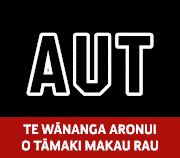We are often unaware of our deep emotional connections with money.
Right from childhood, our attitudes start developing through direct and indirect messaging, differences in parenting and role modelling.
Add in your culture, values, gender norms, religion, and personal life experiences; you can start to put together your story with money.
Your emotions, such as happiness, success, and self-worth are closely linked to the way you relate to money.
Emotional experiences with money can be so strong they can sometimes stop you from having healthy discussions about financial decisions and actions.
We are often unaware of these deep emotional connections, so it is vital to explore, unpack and understand our attitudes, biases, learned behaviours and history with money, especially when entering a relationship.
Start by answering these questions
Your answers will provide insight into your relationship with money.
We recommend writing your answers down or answering them out loud.

QUESTION 1
How is money valued in your family and culture?
QUESTION 2
How open are you and your family to talk about money?
QUESTION 3
Are expectations in your family different for men and women around money – how?
Are expectations in your family different for men and women around money – how?
QUESTION 4
Who handled the finances when you were growing up?
QUESTION 5
Do you see money as good, bad, or just necessary?
Do you see money as good, bad, or just necessary?
QUESTION 6
Did your parents treat you and your siblings the same, where money was involved?
QUESTION 7
Did any person or event, influence your money story – if so, how?
QUESTION 8
What has influenced your view of money the most?
QUESTION 9
Should money be saved or spent?
Should money be saved or spent?
QUESTION 10
What would you consider to be a luxury item?
QUESTION 11
What are your thoughts about debt?
What are your thoughts about debt?
QUESTION 12
Do you consider money to be easy or difficult to obtain?
QUESTION 13
Do you believe money should be your partner’s responsibility, your responsibility, or a joint responsibility?
QUESTION 14
Whose responsibility is it to bring in money to the family home?
Try asking your partner
Comparing your answers with your partner’s will help you understand your financial similarities, differences, and areas that may need negotiation or clarity.
This activity will help build a firm foundation for future healthy financial conversations.
These answers will provide insight into your relationship with money.
Comparing your answers with your partner’s will help you understand your financial similarities, differences, and areas that may need negotiation or clarity.
This activity will help build a firm foundation for future healthy financial conversations.
What's your money personality?
We all use money differently. Sometimes you will be a spender, other times you will be a saver.
Each of us does however have a dominant money personality driven by specific motivators that influence the way we spend and save our money.
It’s important to understand how the way you manage money will affect your financial future.
Once you understand your personality type, it can be factored into any financial conversations and planning you do as a couple.
Take the quiz to find out what your dominant money personality is.
The quiz will ask you a total of 29 yes or no questions – choose the answer that best suits you.
Your money personality
Your money personality
Time limit: 0
Quiz Summary
0 of 29 Questions completed
Questions:
Information
You have already completed the quiz before. Hence you can not start it again.
Quiz is loading…
You must sign in or sign up to start the quiz.
You must first complete the following:
Results
Quiz complete. Results are being recorded.
Results
Time has elapsed
Categories
- Freedom Seeker 0%
- Power Spender 0%
- Security Saver 0%
- Social Sharer 0%
-
Freedom seekers
Freedom seekers use money to buy time. They value experiences – travel or the ability to pour their passion into something they love. It’s important for young freedom seekers to be aware of their tendency to live in the moment so they don’t disregard their future selves. The most successful freedom seekers have self-control and focus on achieving their goals. For some, it’s a lifelong focus on getting more time through generating financial freedom. And of course, old freedom seekers never change, they just find new horizons! Experience is everything for our freedom seeker. Which is a good thing for them, as research tells us that spending money on experiences makes us happier than buying possessions.
Security savers
Money is a way to feel safe for the security saver. It gives them a sense of control. They may be cautious about any investment they perceive as risky and younger security savers may be working hard to be in a position to buy their first home. They’ll probably spend more money on creating a nurturing home environment than they do on socialising away from home – because home is at the heart of the security saver’s world. Security savers need to be careful they don’t miss out on experiences in the present because they are too concerned about saving for the future. Being secure isn’t just about being clever with your savings – it means being clever with the way you spend your money too.
Sociable sharer
The sociable sharer uses money as a way of showing they care about someone. These are the people you want as your best friend. Always up for a party or inviting you over for dinner – willing to lend you money if you need it. Sociable sharers are likely to have a separate ‘mental account’ which means they can rationalise spending money on others even if it means they miss out somewhere themselves. They may splash out more than they can afford on social activities – going out to dinner or buying presents – because for them spending money on other people is a way to make and maintain relationships. Spending time with family or friends will probably be more appealing to them than a shopping expedition.
Power Spender
If you’re a power spender you react to money in a very immediate way. Maybe it’s the thrill of buying something new that you respond to. Maybe it’s the confidence that comes from knowing you’re driving the right car to make a good impression. Perhaps it’s just a sense that you deserve to be able to treat yourself. Power spenders tend to operate at the ‘spender’ end of the spectrum although when in ‘saver’ mode they may be the ones prepared to make riskier investments for higher returns. Sometimes this fearlessness about risk – and willingness to start over again if it all goes wrong – can make them wealthy. Power spenders also need to be aware of what is known as hedonic adaptation – when the thrill wears off each new purchase as you get used to it and you want to move on to the next thing to keep your mood up. Novelty is great and makes us happy – but it doesn’t always need to come with a price tag.This quiz is designed to help you identify behaviours and attitudes that might shape the way you think about money.
More information about the quiz and answers can be found here
- 1
- 2
- 3
- 4
- 5
- 6
- 7
- 8
- 9
- 10
- 11
- 12
- 13
- 14
- 15
- 16
- 17
- 18
- 19
- 20
- 21
- 22
- 23
- 24
- 25
- 26
- 27
- 28
- 29
- Current
- Review
- Answered
- Correct
- Incorrect
-
Question 1 of 29
1. Question
I’m good with budgeting
-
Question 2 of 29
2. Question
I like to live in the moment and be spontaneous
-
Question 3 of 29
3. Question
I like adventure and want to escape the daily grind
-
Question 4 of 29
4. Question
If I could travel instead of working I would
-
Question 5 of 29
5. Question
Money provides some independence for me
-
Question 6 of 29
6. Question
I would prefer a holiday over saving
-
Question 7 of 29
7. Question
I like spending money on experiences and challenges more than saving
-
Question 8 of 29
8. Question
I would prefer to spend money to improve my assets, rather than spending on experiences
-
Question 9 of 29
9. Question
I like to feel financially safe and have something for a rainy day
-
Question 10 of 29
10. Question
I will sacrifice and go without, rather than spend money
-
Question 11 of 29
11. Question
I tend to focus on the future, sometimes forgetting to live in the now
-
Question 12 of 29
12. Question
I would definitely get insurance for my assets
-
Question 13 of 29
13. Question
Money provides a sense of security for me
-
Question 14 of 29
14. Question
I love bargains
-
Question 15 of 29
15. Question
I like to have a good time
-
Question 16 of 29
16. Question
I’m comfortable lending money to family and friends
-
Question 17 of 29
17. Question
Giving gifts is a way I make, build and maintain relationships
-
Question 18 of 29
18. Question
I live in the now
-
Question 19 of 29
19. Question
I’m generous
-
Question 20 of 29
20. Question
I show love with money – buying things, shouting others etc.
-
Question 21 of 29
21. Question
I often spend more than intended
-
Question 22 of 29
22. Question
I often experience shopper’s remorse – change my mind, or regret my purchase when the good feeling passes
-
Question 23 of 29
23. Question
I like to treat myself
-
Question 24 of 29
24. Question
I really enjoy shopping – it feels great
-
Question 25 of 29
25. Question
I’m often impulsive when I spend
-
Question 26 of 29
26. Question
I would rather feel good now and save later
-
Question 27 of 29
27. Question
I enjoy spending money
-
Question 28 of 29
28. Question
I like the best brands
-
Question 29 of 29
29. Question
Sometimes I feel addicted to buying things
Meeting another money personality

Within relationships, it is not uncommon for couples to develop into opposite modes of behaviour.
Even if both people in the relationship were outgoing, one may soon become ‘the hermit’ relative to the other; even if two parents tend to be permissive, one may get pushed into the role of ‘most permissive’ and the other somehow is seen as ‘the disciplinarian’.
Similarly, couples unconsciously tend to display opposite behaviours around money, especially if they have merged some, or all of their money.
For instance, even if two spenders come together, over time one will become the orderly budgeter who hesitates to make unplanned purchases, while the other becomes the spender.
Being caught in opposite roles can feel very difficult, like being trapped, especially if they started off in similar roles, and now see things differently.
That is why discussing each other’s money styles is a really good first step in unpacking some of the emotional power that money has over you and how it influences your decisions in the relationship.
Set aside time to tell each other anything you appreciate, no matter how small, about your partner’s behaviour around money.
For instance, savers often secretly admire spender’s spontaneity, but they fear that any praise at all will be mistaken as permission to spend wildly.
In reality, when each partner begins to appreciate the other’s strengths and skills, the power struggle is interrupted. When strengths are valued, it can provide a sense of freedom to discuss individual fears about our control and impulses around money.
Remember...
People handle money differently.
A spender is usually someone who is in favour of the quality of life today.
A saver is someone who is in favour of a quality of life in the future.
One person’s way is not the only way.
Accept and negotiate your differences.
Be clear about how you feel.
And don't forget to be respectful of the different ways each one of you wants to handle your money.
We know that strong relationships lead to better health and wellbeing outcomes, and financial wellness is integral to healthy relationships. Two people can be financially capable, but if they’re not communicating well, it creates a barrier to good financial decisions.

Save your progress
Get a reminder so you can continue at a convenient time

“It is great to have the strategies and challenges come together so that you are learning together, sharing together and discovering together”
– Toolkit user
DEVELOPED BY
Good Shepherd NZ in partnership with Dr Ayesha Scott
AUT Finance Department
Good Shepherd NZ in partnership with Dr Ayesha Scott
AUT Finance Department
Disclaimer
The information, content and materials provided in our Healthy Financial Relationships Toolkit is for general informational purposes only and does not take into account the financial situation and/or particular needs of any person. Before making important financial decisions, you should seek professional advice if possible. This Toolkit contains links to other third-party websites. Such links are only for the convenience of the reader, user or browser. Good Shepherd NZ and AUT do not endorse the contents of third-party sites.
Did you find this useful?
We are a not-for-profit organisation working to improve the financial and social wellbeing of New Zealanders.
The resources on this website are provided free of charge to make sure they are available for people who need them.
If your organisation found these resources helpful, please consider making a donation to ensure we can continue supporting those people who need our help.
You can also make a donation, or set up a recurring donation, by contacting us directly







